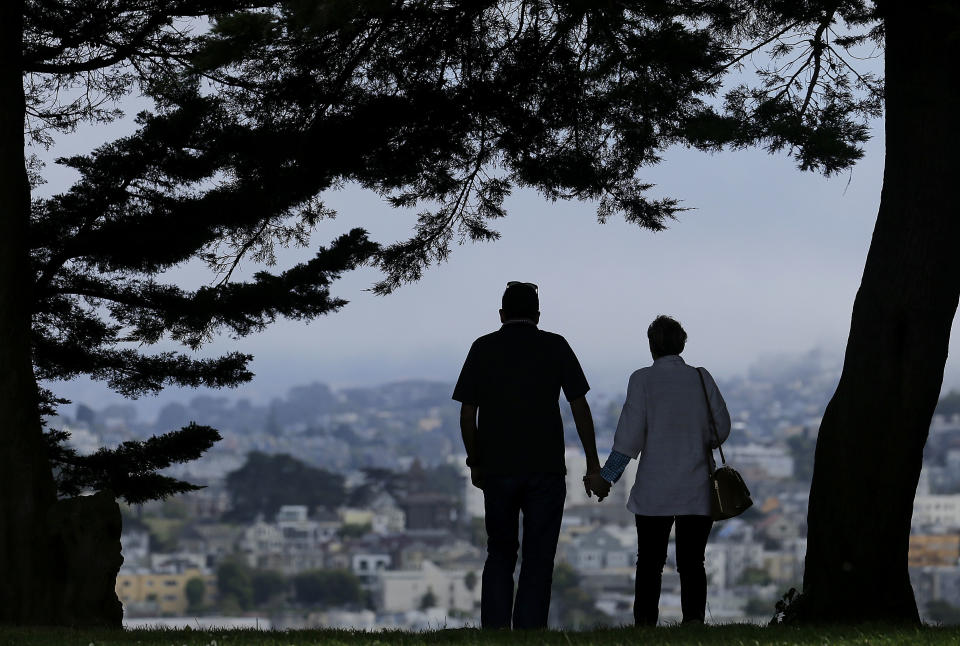Millennials believe they’ll die before they retire
When will you retire? Will it be at the “full retirement age” of 66? Perhaps you’ll be able to retire early, at the age of 55.
Unfortunately, most millennials think they’ll be working until they die. On Twitter, the hashtag “#MillennialRetirementPlans” recently started trending, prompting a flurry of 20- and 30-somethings to proclaim their outlook on retirement. Needless to say, the results were depressing.
“Why is this on trending? We all know we'll never be able to retire,” one person tweeted.
“Most of us will die early from the lack of a universal health care system,” another tweet stated. “The rest of us will never be able to retire from working our multiple jobs to pay off our massive student debt in an economy where wages have not kept up with inflation.”
Very few tweets show millennials with concrete retirement plans, like contributing to an employer sponsored plan like a 401(k), or an individual retirement account (IRA).
Work myself to death since healthcare is a debt sentence & social security won’t exist by the time I’m of “retiring age”. Or just wait for the nuclear apocalypse. #millennialretirementplans pic.twitter.com/fsadjbOn0l
— Lumppytaters (@Lumppytaters) September 17, 2019
But the anxiety over retirement isn’t exclusive to the millennial generation — most Americans don’t have enough saved for retirement. A 2018 study from Northwestern Mutual found that 1 in 3 Americans had less than $5,000 in retirement savings, while 21% had nothing saved for their retirement at all.
And with health care costs on the rise, the student loan debt crisis topping $1.5 trillion, and the Social Security trust fund set to run out of money in 2035, most millennials feel that the possibility of retirement is just out of reach.
Millennials graduated from college into a recession, but even with an economy growing over the past decade, and an unemployment rate at a 49-year-low, not all Americans have recovered.
According to the Economic Policy Institute (EPI), wage growth hasn’t bounced back to pre-recession levels, and remains fairly low and flat. In August, wages grew by 3.2% over the year — below targets of 3.5-4%. And most of whatever gains were made in the last decade of economic recovery went to the wealthy.
On a national level across all races, the top 1% captured 85% of post-recession income growth from 2009 to 2013, according to an Economic Policy Institute study on income inequality. In some states, they recovered 100% of those gains.

And Americans are feeling it. A survey from Bankrate shows that nearly a quarter of Americans are “worse off” now than they were before the recession.
But this doesn’t mean that millennials are resigned to work until they die.
Presidential hopefuls Sens. Elizabeth Warren and Bernie Sanders hope to expand Social Security, so that the government pension is funded beyond 2035. Under Warren’s proposal, Social Security payouts would increase by $200, or $2,400 each year. Both candidates aim to tax the rich to fund the plan.
And for millennials, there is still time to save for retirement. Financial planner Harold Evensky says the key is planning — and being realistic.
Never retire because I need employer-sponsored health insurance to afford the insulin I need to stay alive. #millennialretirementplans
— Laura Marston (@Kidfears99) September 17, 2019
“Save more and expect to work longer,” he said. “Be realistic about what your goals are. If you want to have a life now and not put your axe to the grindstone all the time, then be realistic about what your retirement is going to look like.”
“Market returns are going to be extremely modest over the next 10 years, so I don’t think you can be bailed out on returns,” says Evensky. But if you don’t mind leading a “low-cost lifestyle” now, then it’s realistic to expect in your retirement you can join golf clubs, and go on trips, he told Yahoo Finance.
Evensky added: “The sooner people start getting realistic and planning, the happier you’ll be.”
Kristin Myers is a reporter at Yahoo Finance. Follow her on Twitter.
Read more:
Follow Yahoo Finance on Twitter, Facebook, Instagram, Flipboard, LinkedIn, YouTube, and reddit.
Read the latest financial and business news from Yahoo Finance


 Yahoo Lifestyle
Yahoo Lifestyle 


